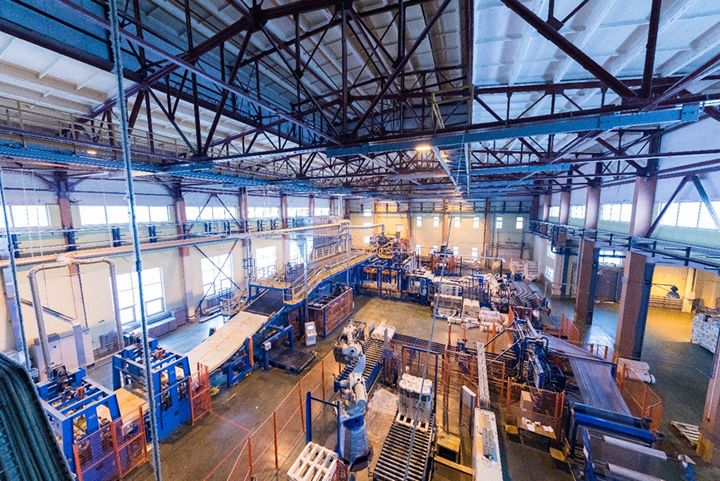Predictive analytics will leverage the power of AI and machine learning to forecast supply chain and market changes. Businesses that use predictive analytics will be able to mitigate risks more effectively
 Advanced Analytics in Manufacturing Logistics: Turning Data into Actionable Insights
Advanced Analytics in Manufacturing Logistics: Turning Data into Actionable Insights

Nick Fryer, Vice President Of Marketing | Sheer Logistics
Data is a crucial part of manufacturing logistics. But how do you go beyond inventory management, order fulfillment, and transportation metrics to gain deeper insights? Advanced analytics allow your company to delve deeper into its manufacturing processes, identify risks and opportunities in its supply chain, and turn information into strategic decisions.
Guided by real-time data, Internet of Things (IoT), artificial intelligence (AI), and GPS, advanced manufacturing analytics are changing the way businesses monitor, improve, and streamline their operations.
What Are Advanced Analytics in Manufacturing Logistics?
Advanced analytics are more precise metrics and data-gathering methods that enhance supply chain visibility and performance. It relies heavily on big data, machine learning, and AI to deliver faster, more accurate insights to managers.
Through advanced technology, companies are able to identify trends and risks more easily. With a more agile framework, logistics managers are then able to optimize their supply chains and enhance their strategies to deliver faster, more cost-effective results to their customers.
Some ways a company might use advanced analytics in manufacturing logistics include:
- Predicting consumer behavior and forecasting demand
- Monitoring and reporting market trends and economic turns
- Enhancing overall equipment effectiveness (OEE) through root cause analysis
- Improving time management through historical data analysis
- Using real-time data to enhance quality control and regulatory compliance
For many businesses, “advanced analytics” may sound like an intimidating concept, but in reality, it’s the process of leveraging the best technology available to enhance what you already do well.
Through advanced manufacturing logistics, companies are able to transform their current data into meaningful metrics that go from being mere observations to actionable insights.
Boosting Supply Chain Efficiency Through Data-Driven Decisions
Implementing advanced analytics into supply chain management ultimately leads to more informed decisions that yield better outcomes. One of the biggest struggles logistics managers face is justifying their supply chain decisions to executives and shareholders who think from an ROI standpoint.
Data talks, and when a logistics manager can clearly illustrate the benefit of their strategies to leadership, the entire company benefits.
Ultimately, advanced analytics create a more controlled supply chain. Traditionally, companies that lacked substantial vertical integration were limited to their suppliers’, vendors’, and distributors’ own schedules. But with more refined technology and data, they can begin to optimize their own processes and communicate their needs more effectively with their supply chain partners.
Examples of Advanced Manufacturing Logistics Metrics
Through advanced analytics powered by AI and machine learning, companies can gain insights into vital parts of their supply chain that they may not have been able to accurately track or measure in the past.
Some of the advanced metrics companies can track with modern technology include:
- Product cycle time — The total amount of time it takes for a company to fulfill an order from production to delivery.
- Capacity utilization — A metric that determines whether a machine is operating at its maximum or most efficient capacity.
- Supplier quality incoming — The quality of raw materials obtained from suppliers, number of defects, damages, returns, etc..
- Yield — The percentage of products that pass quality assurance checks in a given period; advanced analytics can help you calculate your company’s yield much faster and more efficiently.
The exact metrics or KPIs you choose will depend on factors like your industry, current operations, and company infrastructure. With modern technology being so agile and scalable, logistics managers can customize their solutions faster and more effectively than ever.
Navigating the Challenges of Data Integration in Manufacturing
Data integration can have technical challenges that ultimately delay management from implementing newer technologies into their supply chain. Data integration ultimately gives your team a unified view of all the data it collects, ensuring you’re able to glean as much insight as possible from your findings.
Understanding these challenges ahead of time can help you ease doubts or wariness from executives, develop a strategic implementation plan, and start leveraging data effectively from day one.

Complex Data Structures
When you combine various types of data, such as IoT, AI, and quality management systems (QMS), synthesizing all of that information into one cohesive format can feel overwhelming.
Companies must consider the various data structures, formats, and protocols that each system uses, then determine how they’ll effectively merge them into a cohesive analytical framework.
Working with a skilled logistics company is the best way to ensure that your data converges at all the right points. This gives you the greatest insight into your operations and provides maximum value.
Lack of Standardization
Companies that do not set standards for their data collection and analysis can run into errors and inconsistencies that negatively affect their performance. Even though you may purchase an out-of-the-box solution, you need standardization to ensure that the information you gather is cohesive and organized.
Ensure that there are company-wide policies regarding data entry. Talk with suppliers and coordinate your efforts to prevent human error, confusion, or oversights.
Security & Compliance
Depending on what type of data you’re collecting or storing, you will need to update your privacy policy and disclaimers to customers. You will also have to discuss information with suppliers, vendors, and other partners in the supply chain. Everyone should know what information is being collected, who has access to it, how and where it will be stored, and what it will be used for.
Depending on your industry, there may be stricter regulatory compliance regarding what type of data you can gather and how it must be stored. Due diligence is essential to ensure that your company covers all of its legal bases before integrating new data collection or analytical technologies.
What’s Next? The Rising Role of Predictive Analytics in Manufacturing Logistics
Predictive analytics will leverage the power of AI and machine learning to forecast supply chain and market changes. Businesses that use predictive analytics will be able to mitigate risks more effectively, develop more effective optimizations, and create a more efficient supply chain.

Nick Fryer has over a decade of experience in the logistics industry, spanning marketing, public relations, sales enablement, M&A and more at 3PLs and 4PLs including AFN Logistics, GlobalTranz, and Sheer Logistics.
The content & opinions in this article are the author’s and do not necessarily represent the views of ManufacturingTomorrow
Comments (0)
This post does not have any comments. Be the first to leave a comment below.
Featured Product

